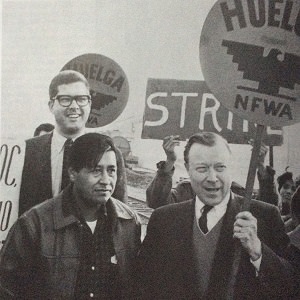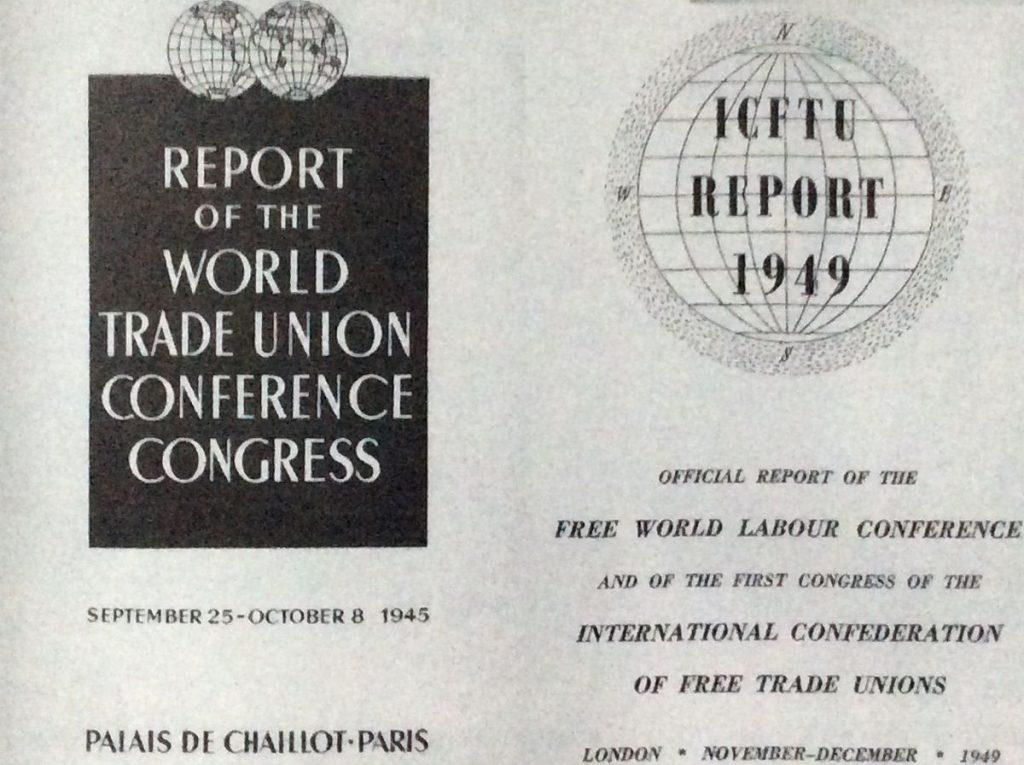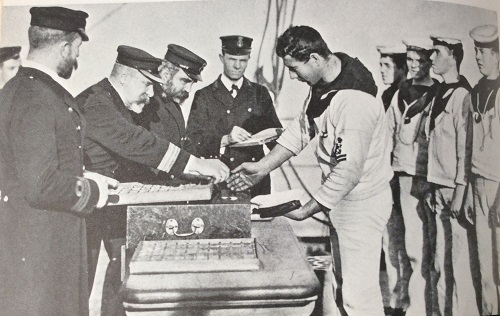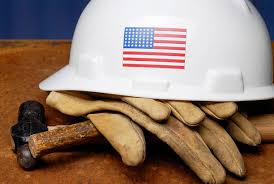Books
Authored by Dr Anthony Carew
American Labour's Cold War Abroad: From Deep Freeze to Detente, 1945-1970
American Labour’s Cold War Abroad is a wide-ranging study of the international free trade union movement in the post-war years. The context is the Cold War, the book’s central concern being the way international events in this conflict were perceived in labour circles and how, in response, American labour’s policies were developed and implemented ...

Labour Under the Marshall Plan: The Politics of Productivity and the Marketing of Management Sciences
If one year in the post-war period saw the world’s fate politically sealed, it was 1947. In that year the emerging Cold War took a quantum leap forward, while the development with the biggest impact was undoubtedly the announcement of the Marshall Plan for aid to Europe. The Chairman of the US Senate Foreign Relations Committee suggested that it would be ‘the turning point in history for a hundred years to come’ ...

Walter Reuther
Walter Reuther was without doubt one of the most important American labour leaders of the twentieth century. Raised in West Virginia, the son of a German immigrant and local labour leader, from whom he imbibed his early socialist values, in the late 1920s Reuther apprenticed as a toolmaker in Detroit with the Ford Company. When laid off in the height of the depression, he travelled widely throughout Europe and Asia and worked for eighteen months in the USSR. Back in the United States, in 1935 he became a founder member of the newly formed United Auto Workers (UAW), which was soon to become America’s largest union. As a union organiser, he played a key role in the sit-down strikes of 1937, emerging as one of the three or four leading contenders for the national presidency of the UAW ...

The International Confederation of Free Trade Unions
Formed in 1949 as the global trade union international for unions in the Western bloc, the International Confederation of Free Trade Unions (ICFTU) was the latest in a succession of bodies dating back to 1902 that aimed to speak for international labour. It was established in rivalry to the World Federation of Trade Unions (WFTU), created four years earlier in an ambitious attempt to unite unions worldwide, but which had soon fractured under the polarising pressures of the Cold War ...

Democracy & Government in European Trade Unions
At an earlier stage of trade union development it was commonplace for writers to see close links between internal democracy and the wider aims of organised labour. The Welsh miners who wrote The Miners’ Next Step were acutely conscious of the relationship between union structure and policy. The labour theorist, G.D.H. Cole, viewed organisational democracy in practical terms of how best to direct strikes and wage demands. Many rejected Roberto Michels’s notion that union organisation inevitably led to oligarchy, but rather argued that efforts could and should be made to offset this condition. As a former principal of Ruskin College, the workers’ college at Oxford, John Hughes, wrote:

The Lower-Deck of the Royal Navy 1900-1939: Invergordon in Perspective
The Royal Navy (never merely the ‘British’ Navy) has historically been a bastion of deep dyed conservatism, reaching down from the Board of Admiralty to the most lowly seaman and stoker on the mess deck. And yet, during the first thirty years of the last century, it gave rise to a movement for the reform of conditions conducted by the lower-deck ratings themselves. This was a remarkable development in a disciplined service where ratings were denied the right to collective representation. The Naval Discipline Act, always prominently displayed in ships and naval establishments, was a truly fearsome document setting out harsh punishments for action that, in civilian life, would not be seen as an offence. Yet in spite of this deterrent, the organisations the lower deck established to pursue their campaign came close to resembling trade unions which were completely forbidden. This movement of naval ratings is now long forgotten ...



 Share on
Facebook
Share on
Facebook Share on Twitter
Share on Twitter Share on
LinkedIn
Share on
LinkedIn Share on
WhatsApp
Share on
WhatsApp Copy
link
Copy
link

